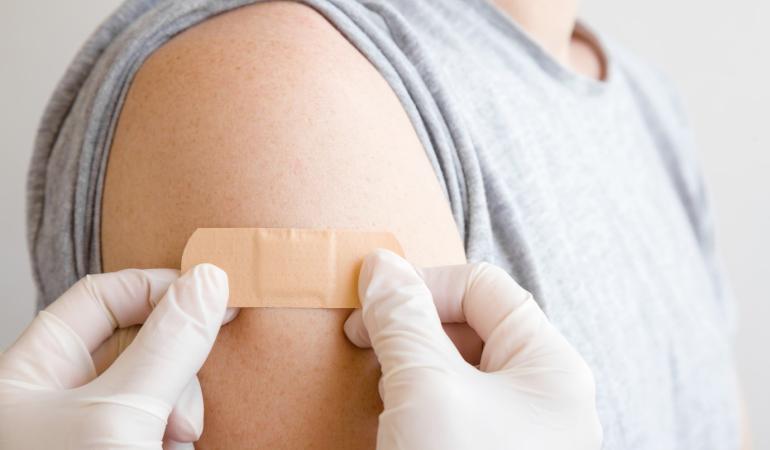
The current monkeypox outbreak is virtually over, and therefore the vaccination campaign to stop the spread of monkeypox, or ‘apenpokken’ in Dutch, will soon be coming to an end. The number of new infections has been very low for a number of weeks, which means the campaign can be brought to a close. Nevertheless, the disease may yet have a resurgence and infections are still being recorded.
Last summer, a vaccination campaign against monkeypox was launched by all Municipal Public Health Services (GGD) across the country. The aim of the campaign was to break the spread of the rapidly increasing outbreak. Individuals with a high risk of getting infected were invited to get themselves vaccinated.
Goal achieved
After a peak in the number of infections in the summer, the number of monkeypox infections decreased to just a handful of infections each week. For example, only 9 individuals were diagnosed with the virus over the past 2 weeks. Due to the small number of new infections, the urgency behind getting people vaccinated is no longer present. In addition to vaccinations, behavioural changes in the target group and natural immunity following a previous infection have most likely led to a decrease in the number of new infections.
The extent of the impact of the vaccinations is as yet unknown.
Surge
A committee of experts will convene in November, and will review whether vaccinations or other measures may be needed in future. Any potential surge of the virus in the summer or introductions from abroad could yet again lead to more infections.
Two vaccinations
Until the end of this month, at-risk groups will continue to be invited to get their first vaccination. The exact date will differ for each individual Municipal Public Health Services (GGD) region. Vaccination for monkeypox generally consists of two vaccinations. The second vaccination, which is administered 4 weeks after the first, will likewise still be provided in November.
Risk of infection still present
Although the number of infections is currently low, the disease has not gone away. It therefore remains important to be alert to any symptoms you or your sexual partner may have. If you are in doubt as to whether or not you may have symptoms, please contact your GP or Centre for Sexual Health.